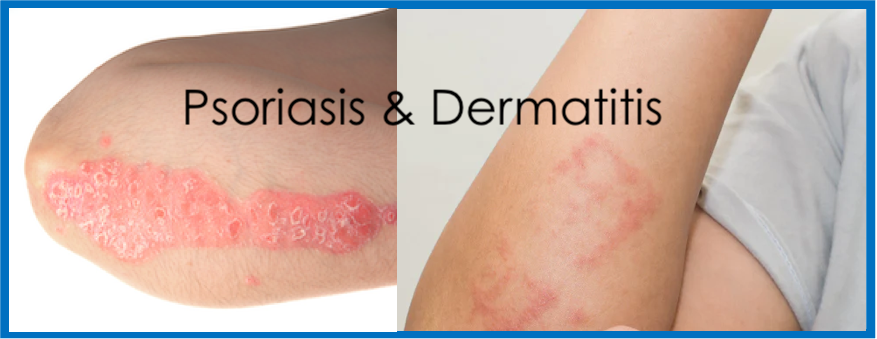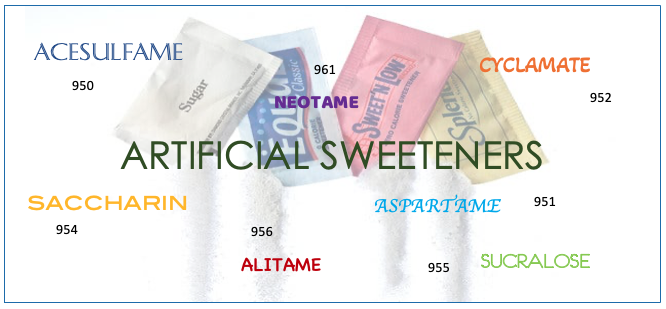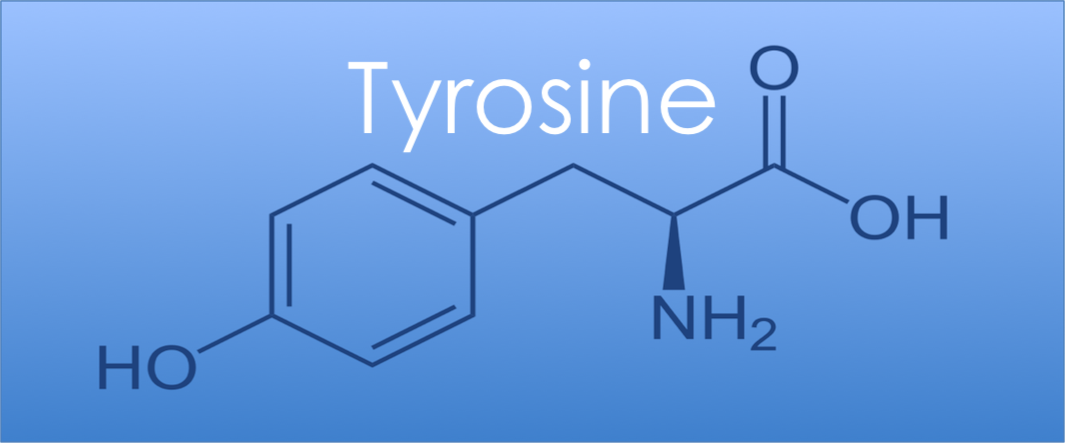Today’s post is about two common skin conditions Psoriasis and Dermatitis.
Quite often these two conditions get mixed up and it is easy to do so. While the two are sometimes looked at in a similar light they are quite different.
First – Psoriasis, what is it?
The Mayo Clinic states – “Psoriasis is a skin disease that causes a rash with itchy, scaly patches, most commonly on the knees, elbows, trunk and scalp.”
There are several different types of Psoriasis – Plaques psoriasis, Guttate psoriasis, Pustular psoriasis, Inverse psoriasis and Erythrodermic psoriasis.
The Clinicians Handbook of Natural Medicine advises that Psoriasis is predominately an immune system issue. It is a condition that causes the skin cells to grow faster than they should resulting in scaley patches. Normal skin cells completely grow and shed (fall off) in a month. With psoriasis, skin cells do this in only three or four days. Instead of shedding, the skin cells pile up on the surface of the skin. These patches occur most often on the scalp, elbows, or knees, but other parts of the body can be affected as well.
What causes it?
Scientists do not fully understand what causes psoriasis, they know that it has a large genetic influence but the environment also plays a role. It can be influenced by smoking, alcohol consumption, even the weather.
Psoriasis has also been linked to other things like Chron’s disease and celiac disease and therefore is thought to have a link to bowel function. Incomplete digestion or poor absorption of protein in the bowel can lead to toxins forming in the bowel leading to increased cell formation.
This can be mediated by some natural compounds that will inhibit the formation of toxins, but are not to be confused with a cure.
Another avenue of investigation is liver function. Because the liver filters blood from the bowel it can become overwhelmed increasing systemic levels of toxins and the result can be Psoriasis.
Interestingly when bone marrow is transplanted from someone without the condition into someone who does suffer from it the Psoriasis has been shown to clear and the opposite is also true.
Treatment
There are many ways to treat psoriasis, and the treatment plan will depend on the type and severity of disease. Treatments include creams or ointments, as well as pills, injections, or light treatments. Managing common triggers, such as stress and skin injuries, can also help keep the symptoms under control.
Now Dermatitis, what is it?
The Mayo Clinic states – “Dermatitis is a common condition that causes swelling and irritation of the skin that may cause the skin to blister. Ooze, crust or flake.”
There are also several different types of Dermatitis –Dermatitis herpetiformis (DH), Atopic dermatitis (eczema), Contact dermatitis(allergy) and Cradle cap or Seborrheic dermatitis.
Dermatitis herpetiformis (DH) is a condition that is related to celiac disease. It is sometimes called “celiac disease of the skin.” Generally caused by a reaction to gluten which triggers an auto immune response through things called IgA antibodies. Not all people who have celiac disease have Dermatitis, only around 15-20%, but it is also linked to intestinal health. However, there are other allergens, like milk, that can cause dermatitis.
Atopic dermatitis (eczema) is another dermatitis condition that has been linked with diet. People with atopic dermatitis are at risk of developing food allergies, hay fever and asthma.
Contact dermatitis is an itchy rash caused by direct contact with a substance or an allergic reaction to it. The rash isn’t contagious, but it can be very uncomfortable. Many substances can cause this reaction, the most common are cosmetics, fragrances, jewellery and plants. The rash often shows up within days of exposure.
Seborrheic (seb-o-REE-ik) dermatitis is a common skin condition that mainly affects the scalp. It causes scaly patches, inflamed skin and stubborn dandruff. It usually affects oily areas of the body, such as the face, sides of the nose, eyebrows, ears, eyelids and chest. This condition can be irritating but it’s not contagious.
Seborrheic dermatitis, also called dandruff, seborrheic eczema and seborrheic psoriasis. When it occurs in infants, it’s called cradle cap.
Treatment
The treatment for dermatitis varies, depending on the cause and symptoms.
So, while both of these conditions are a part of the immune response and can tend to look similar, the causes are quite different therefore so are the treatments.
As always with most illnesses beginning in the gut, a review of the diet is a good start and can produce some good results. Further treatments include things like corticosteroids that block the immune system.
As always, seek help through your chosen health professional if you think you are suffering from any of these conditions.
Till the next post,
Live clean n Prosper
Sources – the Mayo Clinic – US National Institute of Health – The Clinicians Handbook of Natural Medicine



